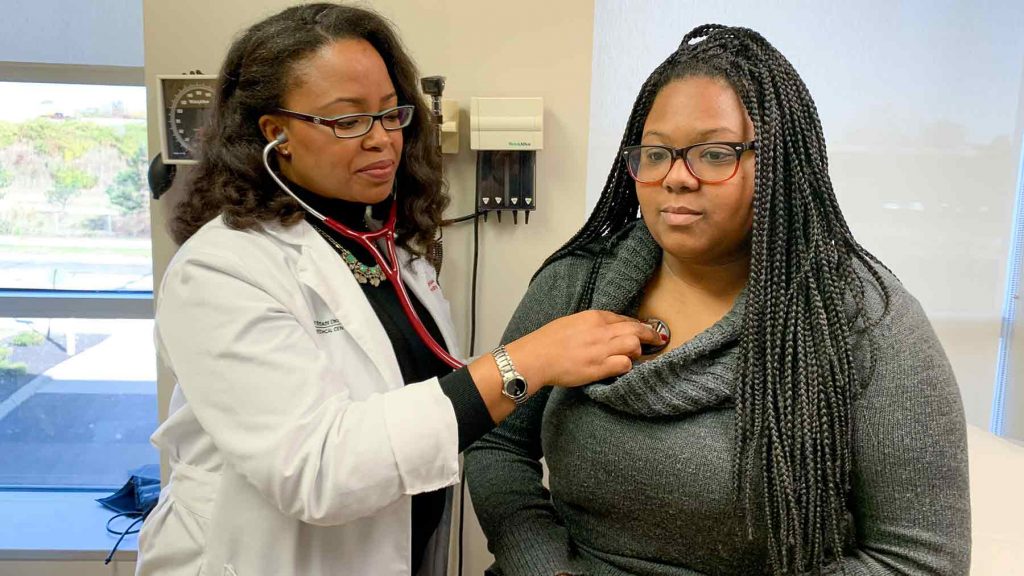What raises my chances of getting pancreatic cancer?
extended version
There are multiple factors that can raise your chances of getting pancreatic cancer. These are called risk factors. Who we are and what we do tends to have some effect on the types of diseases we might get. While researchers have been able to find some risk factors, there is still a great deal that we don’t understand about the role of these factors in pancreatic cancer.
Having multiple risk factors does not necessarily mean that you will get pancreatic cancer. It is important to know what these factors are, because some of these can be decreased through lifestyle changes. However, there is not an exact reason that explains why or how people get pancreatic cancer.
It is also important to remember that cancer of the pancreas is rare. People tend to have a fraction of a 1% chance of developing pancreatic cancer over their lifetime. If a risk factor doubles the chance that someone will get pancreatic cancer, the chance is still fairly low.
Smoking
The most important lifestyle factor that can lead to the development of pancreatic cancer is smoking. It is estimated that 25% of pancreatic cancers are caused by smoking. The risk associated with smoking has been shown as such mainly due to cigarettes, although other tobacco products also increase the risk.
Researchers suspect that smoking increases the risk of developing pancreatic cancer because tobacco smoke contains carcinogens. These carcinogens are harmful and cause cancer. The risk for pancreatic cancer is reduced over time when a person stops smoking. Around 10 years after quitting smoking, the risk of getting pancreatic cancer lowers much closer to that of people who have never smoked.
Diet
Certain studies have shown an association between diets high in saturated fat, red meat, processed food, and sugary drinks with an increased risk of pancreatic cancer. Diets such as these are also linked to diabetes and obesity, which are additionally associated with pancreatic cancer. A study from the UK showed that people with diets that are low in meat were 30-45% less likely to die from pancreatic cancer, and vegetarians were 50% less likely to die from it. Differences in diet may explain why certain regions of the world have higher rates of pancreatic cancer, but there is not agreement across studies about specific dietary elements involved.
Alcohol
Excessive drinking is also a risk factor for pancreatic cancer. While moderate amounts of alcohol seem to be relatively safe, heavy drinking has been linked to a higher risk for cancer of the pancreas.
Obesity and Diabetes
Pancreatic cancer is more likely to occur in people with diabetes, especially those with type 2 diabetes. However, it is not clear if diabetes is a risk factor or a result of this cancer. Diabetes can be associated with pancreatic cancer, but most people who have diabetes do not have pancreatic cancer.
Overall obesity or abdominal obesity appears to increase the risk of pancreatic cancer by about 12-13%. Research also shows obesity raises the likelihood of dying from pancreatic cancer.
Race/Ethnicity
African Americans are more likely to get cancer of the pancreas, compared to the general population. It is not clear why this is true. There are theories that this difference is due to biological factors, as well as diet, smoking, rates of diabetes, and obesity. However, no definitive reason has been found.
Age/Sex
Diagnosis of pancreatic cancer increases with age. About 80% of pancreatic cancer cases are found between the ages of 60-80 years old. The median age of people who are diagnosed with pancreatic cancer is about 70 years old.
Men get pancreatic cancer at a slightly higher rate than women, but this gap has started to close over the years. This is thought to be due to higher levels of cigarette smoking in women in more recent times.
Other Illnesses
Certain illnesses are risk factors for pancreatic cancer. The main example of this is chronic pancreatitis. Only about 4% of people who have pancreatitis get pancreatic cancer, but it is a risk factor. About 1% of pancreatic cancers are associated with pancreatitis. Other illnesses that may increase risk for pancreatic cancer are cirrhosis of the liver, peptic ulcer disease and certain kinds of hepatitis.
Family history/genetic factors
Some genetic mutations that may increase the risk of getting pancreatic cancer are passed down through families. These mutations are passed on through genes. It is thought that as much as 15% of cases are related to hereditary genetic factors. Some of the more well-known mutations that can play such a role in pancreatic cancer are the BRCA 1 and BRCA2 genes.
Genetic testing can look for mutations in your DNA that you have inherited. This type of testing is recommended to those who have a family history of pancreatic cancer – especially if that family member is a first degree relative, like a sibling or a parent.
If a hereditary genetic test comes back positive, this does not mean that you have pancreatic cancer or that you necessarily will get pancreatic cancer. However, it does inform of increased risk for the disease. If necessary, there are screening programs that can be utilized to monitor status on a regular basis.
Hereditary genetic testing is also recommended for patients who have been newly diagnosed with pancreatic cancer. About 15% of people have certain mutations that can be directly targeted with specific cancer treatments. An example of one of these targeted treatments is the drug Olaparib.
Another way that genetic testing can be used to create a more individualized treatment plan is to process tissue directly from a pancreatic cancer tumor. Genetic testing on a tumor is sometimes called biomarker testing, molecular profiling, or tumor testing. This is done by taking a sample of the tumor tissue through biopsy and testing it for mutation patterns. Mutation patterns can provide information on how a cancer may respond to certain treatments. Oncologists can utilize this information to create medical treatment plans that specifically target the tumor based on its specific genetic makeup.
Exposure to certain substances
Prolonged exposure to certain metals, chemicals, and dyes may be risk factors for pancreatic cancer. Examples of some of these chemicals are certain pesticides and benzene.
Extended Version
Categories






Written by: Jasmine Mitchell, University of California Santa Barbara
Edited by: Dale O’Brien, MD, Cancer Patients Alliance
Formatting and content by: Raewyn O’Haire, AB, Cancer Patients Alliance
Consultant: Neil Atam, University of California Santa Barbara
Top Reference
Pancreatic resection: a key component to reducing racial disparities in pancreatic adenocarcinoma
Click Here
Click Here for the ACS Journal article